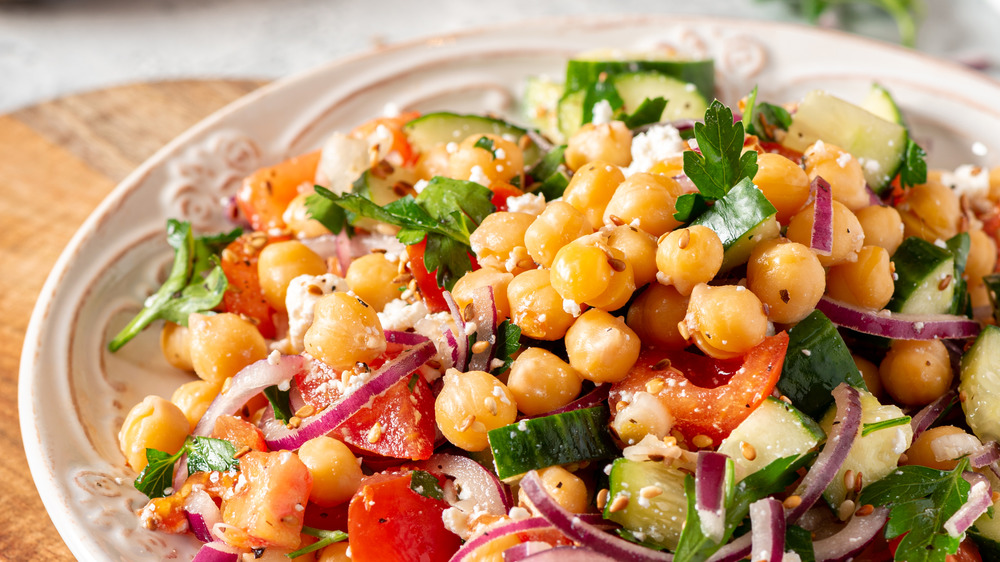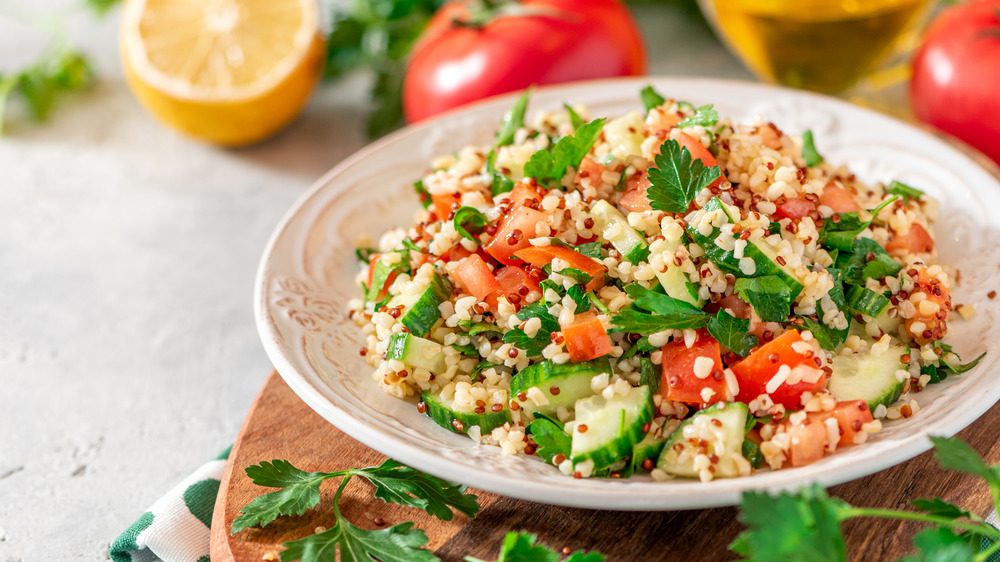Why The 'Green' Mediterranean Diet Might Be Even Better For You
The Mediterranean diet has long been lauded as one of the healthiest diets in the world, but now, according to a new study published in Heart, a 'green' version of the traditional diet has been shown to potentially have even more benefits. A traditional Mediterranean diet includes vegetables, herbs, and fruits as its base, along with plenty of healthy fats like olive oil, as well as nuts, beans, and whole grains. Traditionally, the diet includes moderate amounts of dairy, poultry, seafood, and eggs, with occasional servings of red meat. It's known as one of the most heart-healthy diets on the planet (via the Mayo Clinic).
The recent study split 294 sedentary and moderately obese subjects — primarily men — into three groups: The first group was given information on how to eat a healthy diet and incorporate a better fitness routine into their lives, the second group ate a traditional Mediterranean diet that eliminated red meat while including a daily serving of walnuts, while the third group ate a 'green Mediterranean diet' with additional supplements of walnuts, green tea, and Wolffia globosa—a newly-developed duckweed grown under highly supervised conditions — as a plant-based protein shake that replaced animal protein at dinner.
The markers of heart health improved on both Mediterranean diets, but more noticeably on the 'green Mediterranean' version, with a drop of nearly 4 percent on average of low-density cholesterol.
Why does the 'green Med' diet work?
It's also important to note that the two groups eating a Mediterranean diet were calorically restricted: 1500 to 1800 calories each day for men and 1200 to 1400 calories each day for women. The control group advised to eat a 'healthy diet' with no restrictions lost an average of 3.3 pounds over six months, while the basic Mediterranean diet group dropped 11.9 pounds on average, and the third group eating 'green Mediterranean' lost an average of 13.7 pounds.
The 'green Mediterranean' diet did not restrict participants from eating animal-based foods like poultry, seafood, or eggs. Rather, it eliminated red meat and replaced animal protein that would traditionally be eaten at dinner with the high-protein plant-based Wolffia globosa supplement. Duckweed is a high-protein tiny plant found in lakes that serves as a primary food source for ducks, and similar to algae strains like spirulina, it's becoming more popular as a potential replacement for animal-based protein sources (via ScienceDirect).
It also added green tea, which studies have shown can help boost weight loss by burning between 3 and 4 percent more calories throughout the day, which could be part of the reason participants were so successful in dropping pounds in the 'green' group (via Healthline).
Whether you're hoping to simply eat healthier, lose weight, or improve heart health, adopting a Mediterranean diet is a great place to start, and to boost results, consider taking this study's message to heart by adding more plant-based protein sources to your diet while eliminating red meats, especially extremely-processed ones like pepperoni, sausage and hot dogs (via Healthline).


